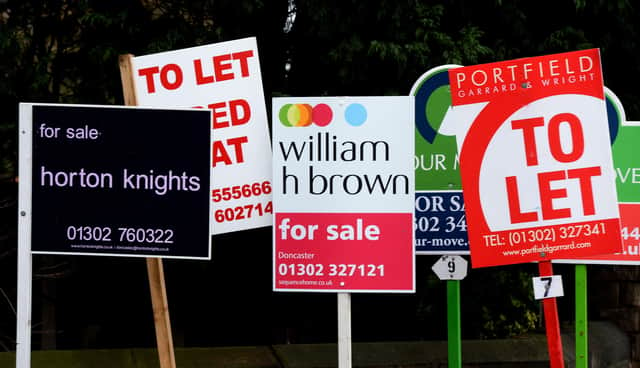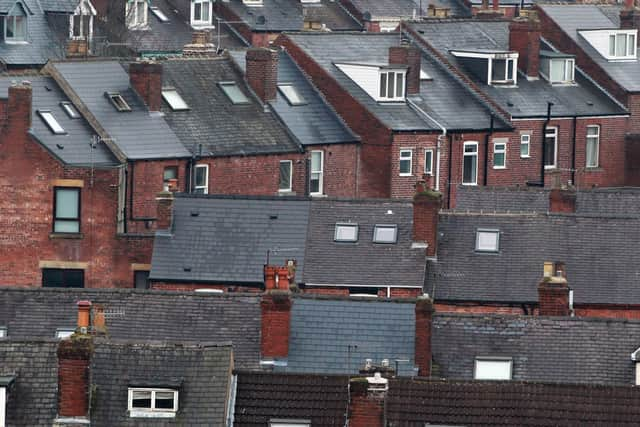Has our property greed sold our children down the river? – David Behrens


I’ve based this on my own, back-of-an-envelope calculation, starting with the figure I paid for a house there, in the early 1980s. £34,000 seemed like an astronomical amount at the time, but it was worth it, I told myself, for the transport links and the schools.
Everyone moving there, or to an area like it, has had the same internal dialogue. Then, after a few years of peering into estate agents’ windows and watching the prices go up, we’ve patted ourselves on the back for having made a wise investment – both in the bricks and mortar and in our children’s education.
Advertisement
Hide AdAdvertisement
Hide AdBut were we unwittingly selling the next generation down the river? Today, the average price of a house in more than two-thirds of England is over £200,000. That was the headline statistic from a report this week by the estate agent, Savills. And the proportion of areas like Ilkley where the average price is more than double that, has risen from less than three per cent a decade ago to 11 per cent today.


So how are our impeccably-schooled sons and daughters supposed to afford to live there? Have we condemned them to a life in the undesirable last third of the country?
To some extent, the property ladder has always worked this way. In the 1950s, my parents considered £1,500 excessive for the suburban semi north of Manchester in which they planned to raise a family. They were right: house prices then were four times the average annual salary. But in Ilkley and similar hotspots, that ratio has itself quadrupled since then.
Advertisement
Hide AdAdvertisement
Hide AdBesides, there was no pressure in their day to buy somewhere in the first place. There was an expectation that state housing would be available for those who couldn’t afford the deposit on a place of their own. But that safety net was cast to the wind back in those avaricious 1980s, when councils were made to sell them off to their tenants by the thousand.
So where is the escape clause that might rescue today’s young people from a lifetime of emptying their hard-earned income into the black hole of a private landlord’s pocket?
One answer lies in taking advantage of the sole benefit that a year of lockdowns has brought – namely the wholesale re-evaluation of what constitutes a “desirable” area. For in an age of working over the internet, those transport links don’t seem so necessary any more. As for schools, there are as many good ones in the back of beyond as there are within commuting distance of Leeds, Sheffield or York. Many, indeed, are easier to get into.
Advertisement
Hide AdAdvertisement
Hide AdIt took several weeks of property hunting to recognise the realities of the new housing landscape, in which areas previously dismissed as inaccessible are becoming suddenly sought-after. In these places, desirability is measured in megabits per second, not minutes from the station. Even in the most distant outposts, where the nearest Sainsbury’s Local is 10 miles away, the internet these days is usually fine.
This is especially true in the East Riding and south of the Humber, where a patchwork of pretty market towns and villages too far from Hull to be considered commutable, is now a practicable proposition for young families whose presence might breathe new life into them. That doesn’t mean a falling from favour of those towns on the “golden triangle” beloved by Yorkshire’s estate agents. But it might level the playing field somewhat.
So I’m joining the flight from the suburbs. For the price of a house near Ilkley, Mrs B and I can live more modestly in somewhere even more pleasant, and perhaps have enough left to buy somewhere for our son.
I am clearly not the only one so inclined. One agent told me he had not seen the market as buoyant for at least 15 years. Goodness knows what it will be like when we’re allowed free rein to go where we like once more.
Advertisement
Hide AdAdvertisement
Hide AdBut it may be a limited window of opportunity, for the housing market is still driven by greed – mine, yours and those who make their living from it – and that has shown no signs of change. A decade from now, prices in these newly accessible areas might have been subject to the same, disproportionate inflation as Ilkley in the 1980s. And we’ll have made the same mistakes all over again, for yet another generation.
Support The Yorkshire Post and become a subscriber today. Your subscription will help us to continue to bring quality news to the people of Yorkshire. In return, you’ll see fewer ads on site, get free access to our app and receive exclusive members-only offers. Click here to subscribe.
Comment Guidelines
National World encourages reader discussion on our stories. User feedback, insights and back-and-forth exchanges add a rich layer of context to reporting. Please review our Community Guidelines before commenting.